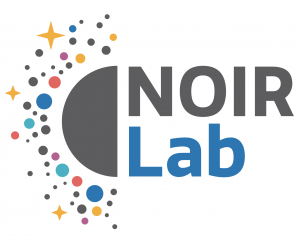Podcaster: Rob Sparks. Guest: André-Nicolas Chené

Title: The First Magnetar Progenitor
Organization: NOIRLab
Links: NOIRLab social media channels can be found at: https://www.facebook.com/NOIRLabAstro ; https://www.instagram.com/noirlabastro/ ; https://www.youtube.com/noirlabastro ; @NOIRLabAstro
NOIRLab Press Release: https://noirlab.edu/public/news/noirlab2319/
Description:
Neutron stars, the compact remains of a massive star following a supernova explosion, are the densest matter in the Universe. Some neutron stars, known as magnetars, also claim the record for the strongest magnetic fields of any object. How magnetars, which are a mere 15 kilometers across, form and produce such colossal magnetic fields remains a mystery.
New observations by a team of astronomers, including NSF’s NOIRLab’s André-Nicolas Chené, may shed important light on the origin of these magnetic powerhouses. Using various telescopes around the globe, including the Canada-France-Hawai‘i Telescope (CFHT) on Maunakea [1], the researchers have identified a new type of astronomical object — a massive magnetic helium star (an unusual variant of a Wolf-Rayet star), which may be the precursor of a magnetar.
In this podcast, André-Nicolas Chené describes the process of finding the first known potential magnetar progenitor.
Bio: Rob Sparks is in the Communications, Education and Engagement group at NSF’s NOIRLab in Tucson, Arizona.
André-Nicolas Chene is an associate astronomer at NOIRLab. He completed his PhD at the Université de Montréal in 2007 and learned everything about the fundamentals of astronomical observations at the Observatoire du Mont Mégantic. He was research fellow at the NRC Herzberg Astronomy and Astrophysics Research Centre and postdoc jointly at the Universidad de Concepción and the Universidad de Valparaíso before joining the Gemini Observatory (now a program of NOIRLab) in 2013. For almost 10 years, André-Nicolas took part in every phase of a Gemini observing program life cycle and has played a central role in Gemini’s user support effort. André-Nicolas’s research interests are massive stars, hot winds, star clusters, and stellar evolution.
End of podcast:
365 Days of Astronomy
=====================
The 365 Days of Astronomy Podcast is produced by Planetary Science Institute. Audio post-production by Richard Drumm. Bandwidth donated by libsyn.com and wizzard media. You may reproduce and distribute this audio for non-commercial purposes.
This show is made possible thanks to the generous donations of people like you! Please consider supporting to our show on Patreon.com/365DaysofAstronomy and get access to bonus content.
After 10 years, the 365 Days of Astronomy podcast is entering its second decade of sharing important milestone in space exploration and astronomy discoveries. Join us and share your story. Until tomorrow! Goodbye!

